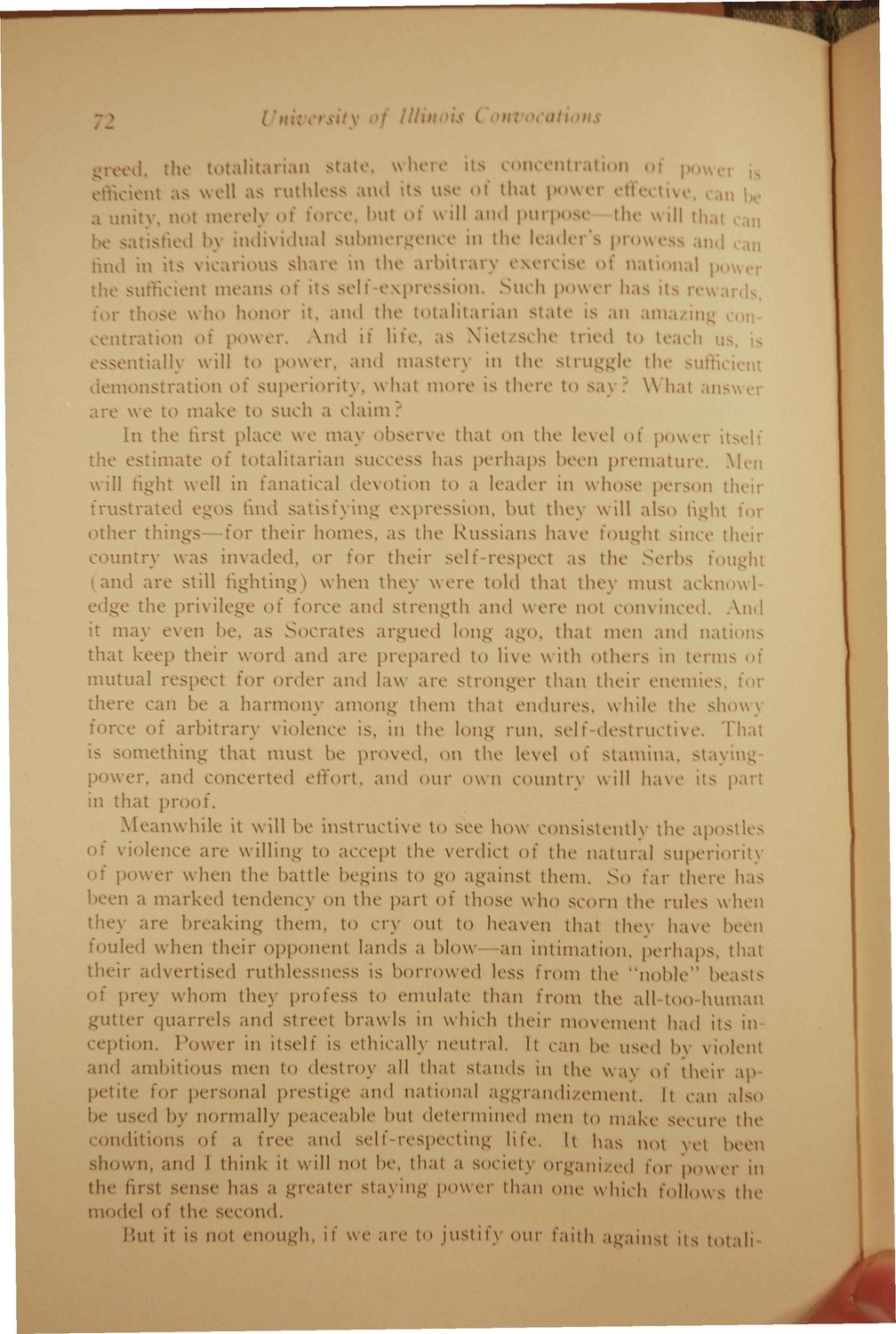Caption: Convocation - 1942 Winter-Spring
This is a reduced-resolution page image for fast online browsing.

EXTRACTED TEXT FROM PAGE:
freed, the totalitarian stair, where n oncentration ol i e icienl as well as ruthless .\\\o\ its use of thai powei tiv< m i i unity, inn merel) of force, but of will and purpose the will thai be satisfied In individual submergence in the leader's prowess and m ind in its \ arious shire in the arbitrar} exercise of national ; w, he sufficient means of its self expression. Such power has its rev* those who honor it. and the totalitarian state is an ama ii d u r a t i o n oi power. n And if life, as Nietzsche tried to teach US, i essentially will to power, and master) in the struggle the sufficient monstration of superiority, what more is there to sa) What answer c we to make to such a c l a i m ; In the first place we may observe that on the level of power itsel the estimate of totalitarian success has perhaps hern premature. Men will fight well in fanatical devotion to a leader in whose person their xustrated egos find satisfying expression, but they will also fight for other things—for their homes, as the Russians have fought since thei country was invaded, or for their self respect as the Serbs fought and arc still fighting) when they were told that they must acknowledge the privilege <u' force and strength and were not convinced. And it may even be, as Socrates argued long ago, that men and nations that keep their word and are prepared to live with others in terms oi mutual respect for o r d e r and law are Stronger than their enemies, for here can be a h a r m o n y a m o n g them that endures, while the show \ force oi arbitrary violence is, in the long run, self-destructive. That is something that must be proved, on the level of stamina, staying o w e r , and concerted effort, and o u r own country will have its part in that proof. Meanwhile it will he instructive to see how consistently the apostles oi violence are willing to accept the verdict of the natural superiorit\ power when the battle begins to go against them. So far there has heen a m a r k e d tendency on the part oi those who scorn the rules when they are breaking them, to cry out to heaven that they have heen foul 1 when their opponent lands a blow an intimation, perhaps, that their advertised rulhlessness is borrowed less from the " n o b l e " beasts i prey whom they profess to emulate than from the all too human gutter quarrels and street brawls in which their movement had its m eption. Pow< r in itself is ethically neutral. It can he used h\ violent and ambitious men to destroy all that stands in the way oi their appetite for personal prestige and national aggrandizement. It can also be used by normally peaceable hut determined men to make secure the onditions of a free and self-respecting life. It has not yet heen shown, and I think it will not he, that a society organized for power in the first sense has a greater Staying power than one which follows th« model of the second. Bui it is not enough, if we arc to justify our faith against its totali
|